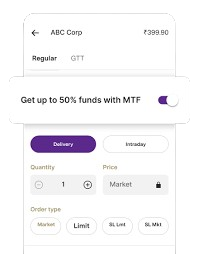What is IMPS - Transaction Charges and How to Transfer Money Online
What is IMPS?
Features of IMPS
-
It facilitates secure interbank money transactions.
-
The participants for IMPS include a sender, receiver or beneficiary, banks, and NPCI.
-
IMPS transactions are compatible with both mobile and online banking systems.
-
You can use a beneficiary's Mobile Money Identifier (MMID) or contact number to transfer money to them over the IMPS platform.
-
IMPS supports the Reserve Bank of India's (RBI) initiative to digitise retail payments.
-
When carried out via smartphones, IMPS transactions do not always require the beneficiary's bank account information.
-
Both the sender and the receiver are notified after the money transfer has been completed successfully.
Necessary Information for IMPS Transactions
-
Aadhaar ID
-
Mobile numbers and the Mobile Money Identifier (MMID) for the sender and receiver
-
Bank account number and IFSC code (an 11-digit code present in the user's chequebook)
Charges in IMPS transactions
-
For transfers up to ₹10,000- ₹2.5.
-
For transfers between ₹10,000 and one lakh rupees- ₹5.
-
For transfers between ₹1 lakh and ₹2 lakh- ₹15.
How to transfer money via IMPS?
-
P2A or Person to Account number: In this method, you can transfer funds to the beneficiary's bank account by entering the recipient's or beneficiary's account number and IFSC code.
-
P2P or Person to Person: You can send money by entering the recipient's or beneficiary's mobile number and MMID.
Steps for IMPS transactions using internet banking:
-
Access the online banking website of your bank.
-
Add a beneficiary by providing the recipient's name, IFSC code, account number, account type, and contact information.
-
Once your bank has approved the addition of a beneficiary, use the money transfer tab and choose the beneficiary you wish to send money to.
-
Verify the transaction, and you're done! The beneficiary's account will receive the money right away.
-
Steps for IMPS transactions via mobile banking
-
Open the mobile app of your bank.
-
Add a beneficiary if you still need to do so.
-
Input the beneficiary's contact number after selecting the money transfer or send money option.
-
Put in the beneficiary's MMID and the amount of money you want to transfer.
-
The funds will be transferred immediately after you input your mPIN to verify the transfer.
Steps for IMPS transactions via ATM
-
Visit the ATM of your bank.
-
Choose a language, then enter your pin.
-
Choose "Other Services" from the menu screen, then "Fund Transfer," then "IMPS Fund Transfer."
-
Enter the beneficiary's mobile number.
-
Next, enter the MMID and the transfer amount.
-
Verify the transaction and select the account from which to debit the funds.
-
Confirm the details and the transaction.
Things to Keep in Mind with IMPS transactions
-
Never divulge any OTP you receive.
-
Keep your debit card information private
-
Never divulge your net/mobile banking login information.
Benefits of IMPS
1. Real-time transactions are performed.
2. The consumer has a variety of payment options.
3. The transaction process is relatively straightforward.
4. Transactions can be done anywhere, anytime.
5. Integrated security measures
Conclusion
Never miss a trading opportunity with Margin Trading Facility
Enjoy 2X leverage on over 900+ stocks

